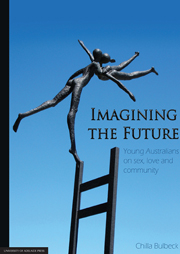Book contents
- Frontmatter
- Contents
- Acknowledgements
- Introduction
- 1 Essaying difference: Comparing essays across the sub-samples
- 2 Learning from their parents: Inter-generational change and continuity
- 3 Emotional literacy and domestic relations
- 4 Global visions and cramped horizons: Stories of class
- 5 ‘Intimate’ citizenship?
- Conclusion: Equality in the rhetoric, difference in reality
- Appendix 1 The questionnaires
- Appendix 2 The sample
- Appendix 3 Survey statistics
- References
- Index
5 - ‘Intimate’ citizenship?
Published online by Cambridge University Press: 05 June 2013
- Frontmatter
- Contents
- Acknowledgements
- Introduction
- 1 Essaying difference: Comparing essays across the sub-samples
- 2 Learning from their parents: Inter-generational change and continuity
- 3 Emotional literacy and domestic relations
- 4 Global visions and cramped horizons: Stories of class
- 5 ‘Intimate’ citizenship?
- Conclusion: Equality in the rhetoric, difference in reality
- Appendix 1 The questionnaires
- Appendix 2 The sample
- Appendix 3 Survey statistics
- References
- Index
Summary
Introduction
I am very lucky within my group of friends because we can discuss issues like this. They're all amazingly intelligent people. I mean, we do talk about T.V, make-up, typical teenage things but we can also sit down and we can have a serious discussion about politics, about religion, about the state of the world. (Kathryn, girls' middle class government high school student, Sydney)
A number of Brett and Moran's (2006: 325) younger interviewees did not see Australia as a ‘national community where bonds between people mattered’. Dora, living in the bohemian inner city on unemployment benefits, had neither a sense of entitlement nor of obligation, because she had no sense of society as a set of reciprocal obligations: ‘Dora simply saw being unemployed as an option for individuals to consider, a choice living in Australia made available’ (Brett and Moran 2006: 226–9). People identified with their breastfeeding or mothers' group, their nightclub or sporting club, as a ‘community’ that would look after its own (Brett and Moran 2006: 275–6, 164, 130).
Those trained in political philosophy and sociology, or who have merely spent their adult lives being ‘good citizens’ by following current affairs, making informed voting decisions and perhaps being members of a political party, sometimes despair at such a lack of social connection and political awareness. This chapter seeks a more positive reading, hopeful of finding potentially new engagements in politics (broadly defined) — more fleeting, more local, more intimate (although sometimes more global) — and based on individual freedoms or abstract ideals rather than ingrained responses to the ‘totem’ issues that divide the baby-boomer generation.
- Type
- Chapter
- Information
- Imagining the FutureYoung Australians on sex, love and community, pp. 167 - 206Publisher: The University of Adelaide PressPrint publication year: 2012



